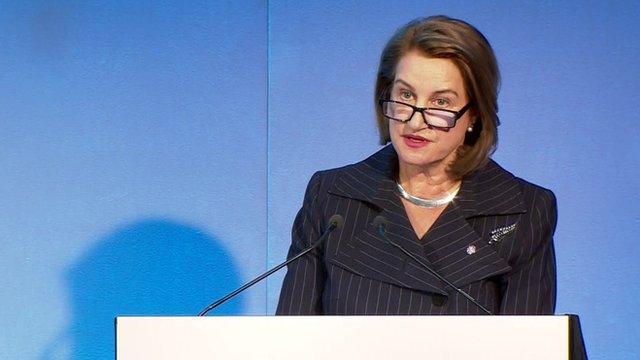How does the inquiry into historical child sexual abuse work?
- Published
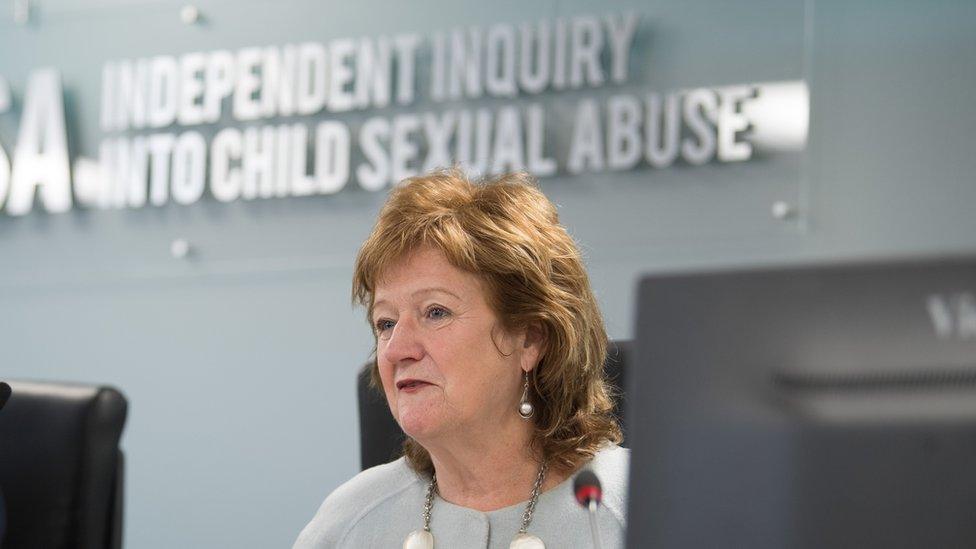
Inquiry chairwoman, Prof Alexis Jay, led the probe into child abuse in Rotherham
The Independent Inquiry into Child Sexual Abuse (IICSA) in England and Wales is investigating claims against local authorities, religious organisations, the armed forces and public and private institutions - as well as people in the public eye.
But it was dogged with controversy after being announced in July 2014, with chairwomen coming and going and lawyers quitting their posts.
Why was the inquiry set up?
Following the death of BBC presenter Jimmy Savile in 2011, hundreds of people came forward to say he had abused them as children.
The spotlight has also fallen on sexual assaults carried out in schools, children's homes and at NHS sites.
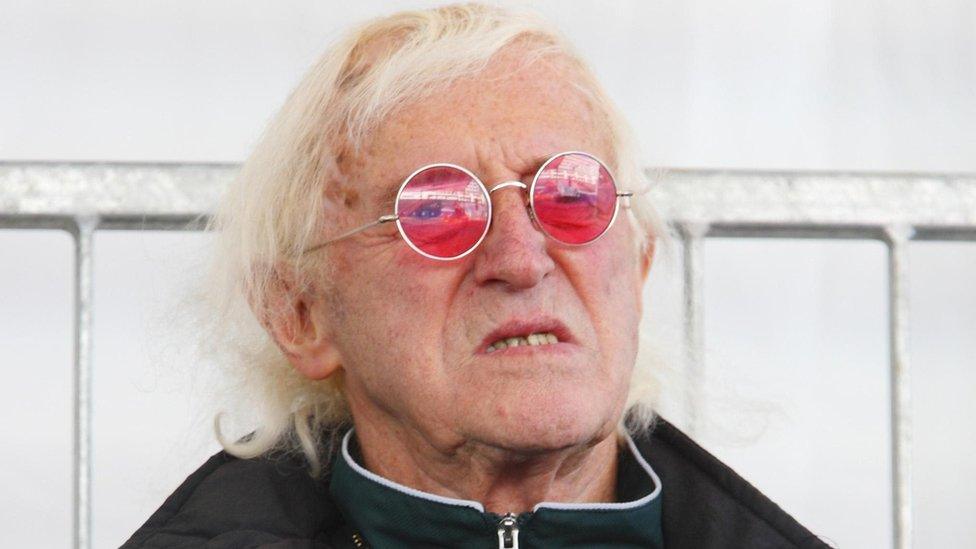
Jimmy Savile died in 2011
At the same time, there have been claims of past failures by police and prosecutors to properly investigate allegations.
The inquiry was announced by the then Home Secretary Theresa May to "expose those failures and learn the lessons" from the past.
How does the inquiry work?
When it was announced, the inquiry was expected to take about five years to complete. When finished, it will publish a final report of recommendations.
It has already published an interim report, external with 18 recommendations - some of which have been acted upon - plus other investigation reports.
The inquiry is divided into public hearings into specific areas of concern, with witnesses giving evidence under oath; research into institutional failures in child protection, and the Truth Project,, external in which victims share their experiences with the inquiry either in private interviews or written form.
The inquiry will not seek to determine civil or criminal liability of individuals or organisations but may reach "findings of fact" in relation to this.
Allegations of child abuse received by the inquiry will be referred to police and material related to Scotland, Northern Ireland or British Overseas Territories will be passed on to the authorities there.
A separate inquiry looking at the abuse of children in care in Scotland, external has been set up by the Scottish Government.
Who is carrying out the inquiry?
The inquiry is being led by Prof Alexis Jay, external, a former director of social services who headed the inquiry into child sexual exploitation in Rotherham.
She is being assisted by a panel of advisers, external: law professor and human rights expert Malcolm Evans; child protection barrister Ivor Frank; and lawyer Drusilla Sharpling, a former Chief Crown Prosecutor for London, who has worked as an inspector of constabulary since 2009.
A separate panel, made up of eight members, represents victims and survivors, external and advises the inquiry on all aspects of its work. There is also a Victims and Survivors' Forum.
Brian Altman QC is lead counsel, external to the inquiry.
What is the IICSA investigating?
The inquiry's public hearings consisted of 15 separate investigations, external.
The inquiry is investigating:
the institutional responses to the sexual exploitation of children by organised abuse networks
alleged failings at Lambeth Council; the Roman Catholic Church; residential schools, and the support services and legal remedies available to victims and survivors
current child protection policies and practices in religious institutions in England and Wales - including non-conformist Christian denominations, Islam, Judaism, Sikhism and Buddhism, as well as tuition classes, groups and camps linked to religious beliefs
the effective leadership of child protection institutions tasked with safeguarding them against sexual abuse
the institutional responses to child sexual abuse allegations against the late Lord Janner, the former Labour peer who in 2015 was ruled unfit to stand trial on child sex abuse charges
What have we learned so far?
As of October 2020, eight of its investigations are complete, external.
Their conclusions included:
the Church of England failed to protect children from sexual abuse, and created a culture where abusers "could hide", with more support given to alleged perpetrators than to survivors
authorities in the UK are failing to use the powers they have to stop British sex offenders travelling abroad to abuse children. As of 31 March 2018, only about 0.2 per cent, external of the 58,637 registered sex offenders in England and Wales had their foreign travel restricted
internet companies must do more to tackle "an explosion" in images of child sex abuse on their platforms, including more stringent age checks and screening images before publication
hundreds of children were sexually abused by predatory foster carers and residential home staff who were allowed to thrive, with Nottingham City and Nottinghamshire County councils accused of exposing vulnerable children to repeated rapes and physical abuse
political institutions failed to respond to historical claims of child sexual abuse but there was no evidence of an organised paedophile network at Westminster
thousands of people forcibly sent abroad as children, many of whom were abused in institutions, should receive compensation. The government has subsequently opened a compensation scheme to pay £20,000 each to about 2,000 eligible survivors
the former council leader in Rochdale, Richard Farnell, "lied" in evidence to the inquiry and his claim that he was unaware of abuse in a hostel, school and other places in the town over 20 years "defies belief". He rejected those conclusions
children in custody in England and Wales are still at risk of physical and sexual abuse, with more than 1,000 reported incidents between 2009 and 2017
the Catholic schools system "prioritised monks and their own reputations over the protection of children", meaning pupils suffered "appalling" abuse over a 40-year period
An interim report concluded that common responses to child abuse "deflected responsibility away from perpetrators and institutions".
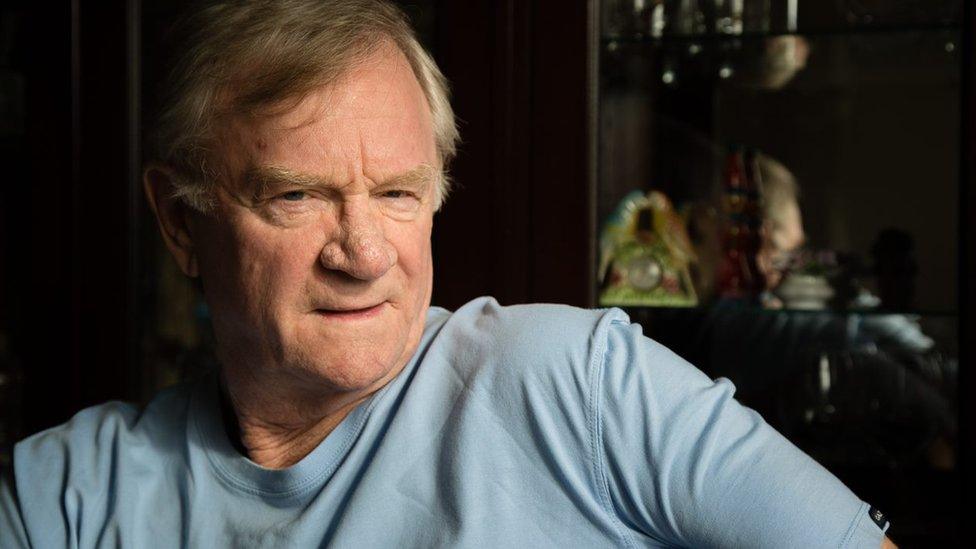
John Glynn is among the victims of the UK's child migrant policy
Why has the inquiry been controversial?
The main bone of contention in the inquiry's early years was who is in charge.
The first chairwoman, appointed in July 2014, was Baroness Butler-Sloss. However, she resigned just one week later after concerns arose around her links to the establishment - namely her late brother, Sir Michael Havers, who was attorney general in the 1980s.
In September 2014, Lord Mayor of London Fiona Woolf was named the new head, but after disclosing she had been to five dinners with the late Lord Brittan - one of the people facing accusations at the time, which have since been dropped - she quit by the end of October.
In February 2015, Justice Lowell Goddard, a serving judge of the High Court of New Zealand, took over the reins and was in charge as the inquiry began hearing directly from victims and survivors. But by August 2016, she had resigned from her post as well due to "compounding difficulties" and her family life.
A number of lawyers have also resigned or been removed from the process.
In November 2016, the largest of the victims' groups involved in the inquiry, the Shirley Oaks Survivors Association, said it had lost confidence in the inquiry's leadership. But despite threatening to pull out of the inquiry, they remain core participants.
A legal case relating to allegations of abuse relating to Lord Janner has been dropped. The case had previously caused hearings to be delayed because of an "overlap" with the criminal investigation.
It was confirmed in March that the hearings would go ahead in October, with some proceedings taking place in private. Lord Janner's family have always maintained his innocence.
How much is this all costing?
IICSA is funded by the Home Office and spent £35.3m in the 2019/20 financial year. According to the financial report, about £12.3m was on staffing with nearly £12m on legal costs, external.
Previous total annual costs were £36.6m in 2018/19, external; £28.5m in 2017/18, external; £20.8m in 2016/17, external; and £14.7m in 2015/16., external
Prof Jay was paid £190,522 in the past financial year, plus £35,536 accommodation allowance.
- Published6 October 2020
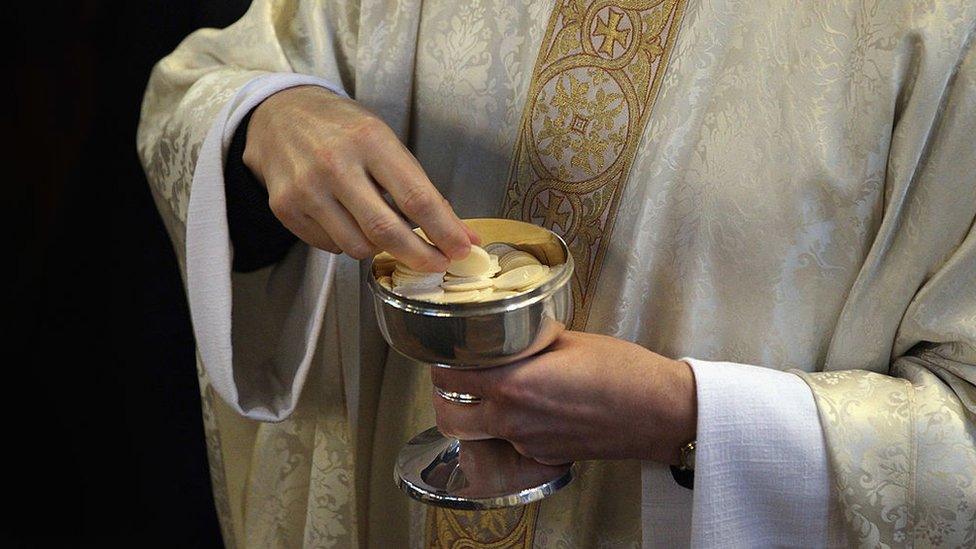
- Published12 March 2020

- Published25 February 2020
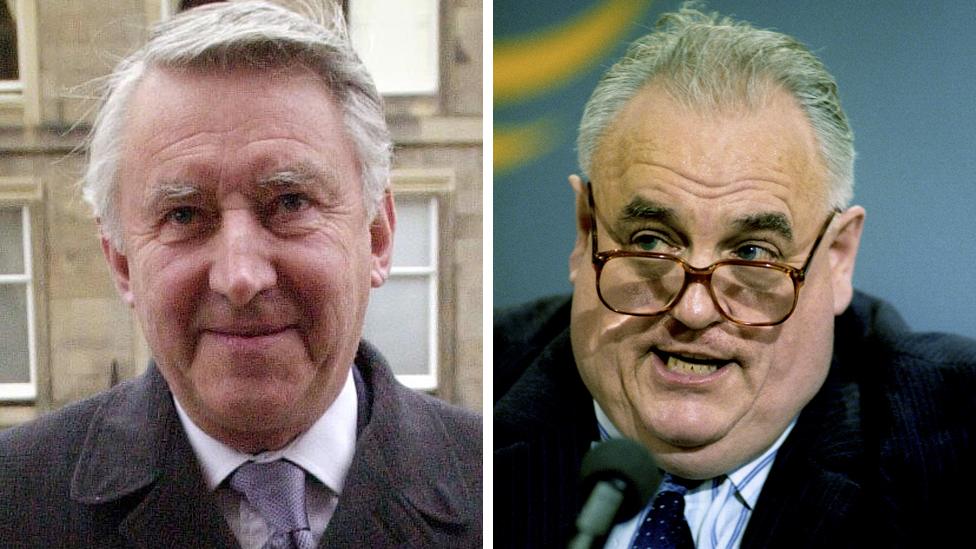
- Published9 January 2020
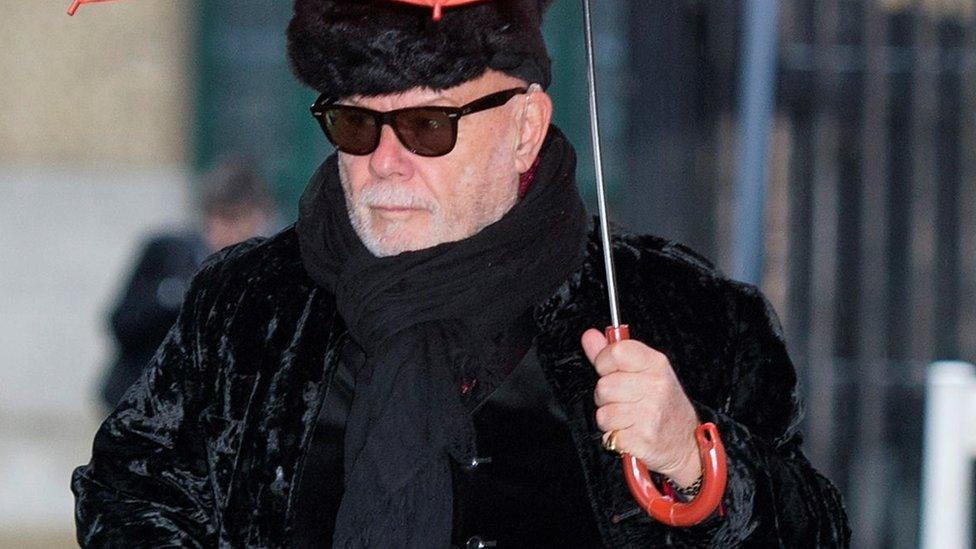
- Published31 July 2019

- Published10 January 2017
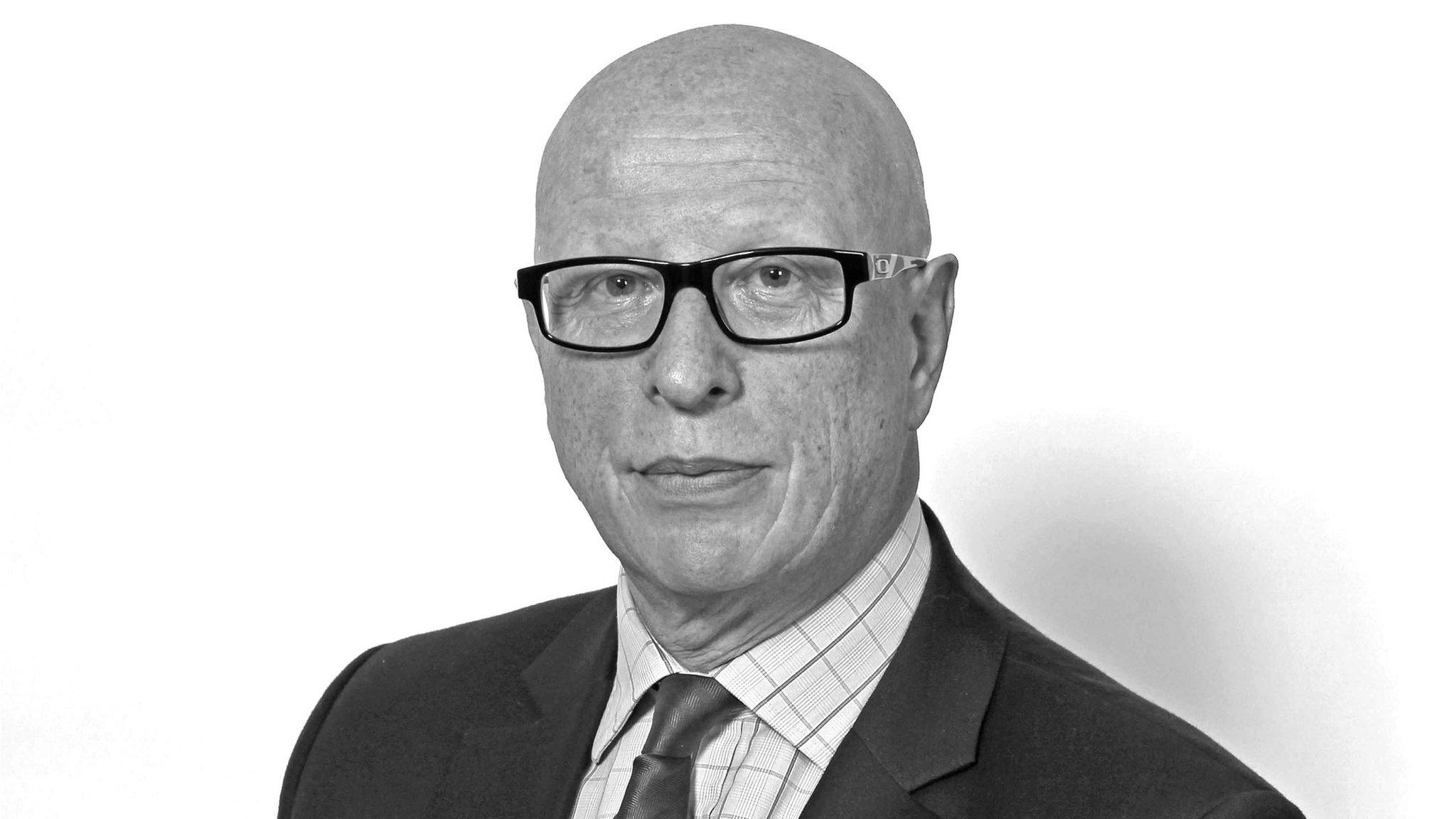
- Published11 August 2016
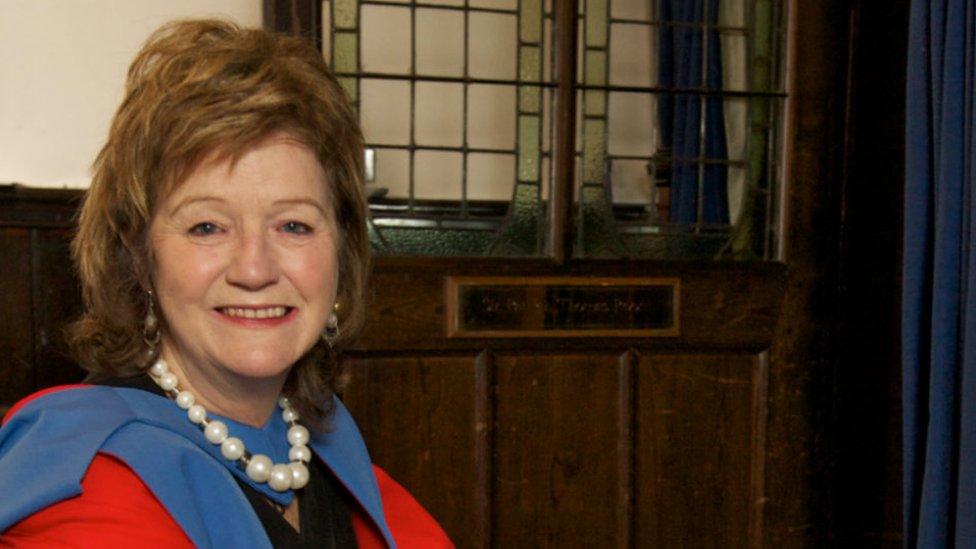
- Published24 March 2016
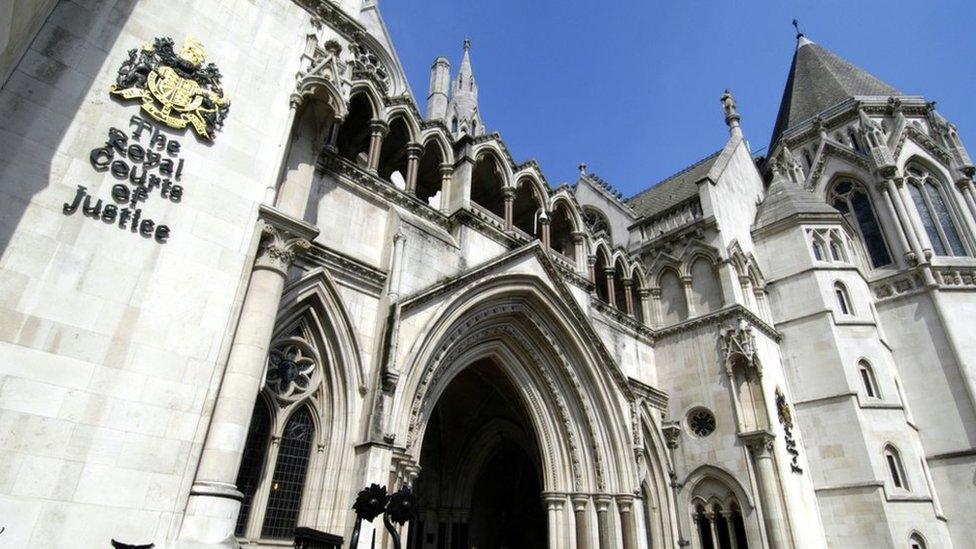
- Published27 November 2015
